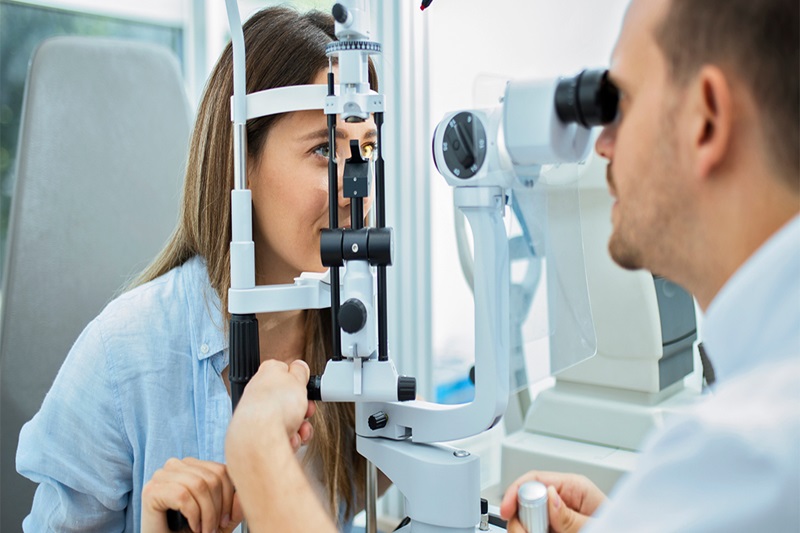Has it been a long time since you last had your eyes tested? Are you straining your eyes to read this blog? Do you find it difficult to drive at night or work at your computer without feeling a surge of irritation in your eyes? If the answer to any of these questions is yes, you might benefit from a visit to the optometrist.
This comprehensive guide will lay out clear signs—both obvious and less so—that it might be time to see an optometrist. From navigating the blurry world of eye discomfort to decoding the subtle signs that suggest your child might need glasses, this guide will cover it all.
Awareness, they say, is the first step towards action. By acknowledging your symptoms and understanding the importance of regular eye check-ups, you are likely to address any potential eye issues before they become full-blown problems, potentially saving yourself from more serious complications down the road.
When is it Time to Visit an Optometrist?
Typically, it’s recommended to have your eyes tested every two years. However, many of us neglect this simple preventive care habit due to our fast-paced lives. It’s important to remember that your eyesight is a pivotal aspect of your general health.
If you’re struggling with constant headaches, this could be your body’s subtle way of telling you that your eyes are straining too hard. Reduced night vision, another commonly disregarded symptom, could also be an early signal that your eyesight isn’t as robust as it used to be.
In some cases, vision problems can lead to other issues such as learning difficulties in children or increased risk of accidents in adults. Hence, visiting an optometrist when these symptoms appear can prevent such troubles from escalating.
Recognizing Eye Strain and Fatigue
Do you find yourself rubbing your eyes after staring at a screen for a long time? Or perhaps you experience frequent eye twitching? These could be signs of eye strain or fatigue, both of which merit a visit to the optometrist.
Prolonged screen time can lead to a condition known as digital eye strain, which is now extremely common due to our modern lifestyles. Moreover, excessive exposure to blue light, which digital screens emit, can lead to fatigue and disturb your sleep cycle.
Therefore, to protect your eyes from these modern maladies, it’s vital to have regular eye check-ups, use appropriate eyewear when necessary, and take frequent breaks from screens.
Interpreting Your Child’s Vision Needs
Children, often being less self-aware, may not readily understand or express their vision challenges. As a parent, you may notice a few signs such as regular eye rubbing, squinting, or avoiding visually demanding activities like reading.
These could potentially suggest vision issues that need addressing. Early detection and treatment of such problems can greatly enhance a child’s learning and development. Including Pediatric eye exams in their regular healthcare routine can help promote optimal vision health as they grow.
Weighing the Pros and Cons of Regular Eye Exams
On the pro side, regular eye exams can detect problems early, potentially preventing worsening vision or eye health conditions. Furthermore, Optometrists can also diagnose systemic health issues such as diabetes, high blood pressure, and cancer through a comprehensive eye exam.
The downside, however, is the potential cost and inconvenience involved. Nevertheless, many experts agree that the advantages outweigh these drawbacks given the profound impact eye health can have on our overall health and quality of life.
Embracing the Importance of Healthy Vision
Finally, let’s not ignore the core of our discussion – the significance of healthy vision. It plays a critical role in our everyday life. From reading to driving, cooking to playing, our vision empowers us to perform these and countless other tasks with ease and precision.
Yet, we often take our sight for granted until we start facing issues. That’s why, it’s necessary to give our eyes the care and attention they deserve to ensure they serve us well in the long run.
Conclusion: The Bottom Line on Eye Health
Understanding the importance of regular eye exams and learning to recognize the signs that it might be time for a check-up are the first steps towards maintaining good eye health. Don’t shy away from asking questions when you are at your optometrist’s office.
Remember, open communication can go a long way in receiving the exact care your eyes need. After all, as the famed architect Le Corbusier once said, “Our eyes are made to see forms in light; light and shade reveal these forms.” So, let’s make a pact to take care of our precious eyes, the beautiful windows into the world around us.
